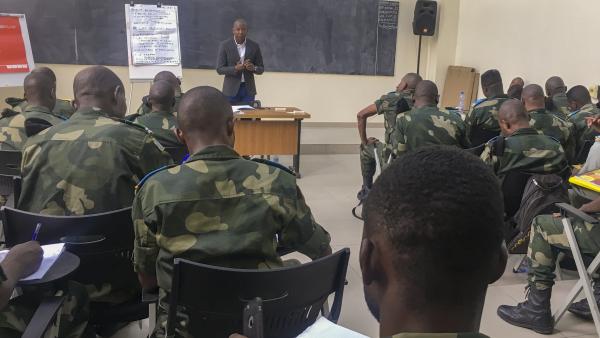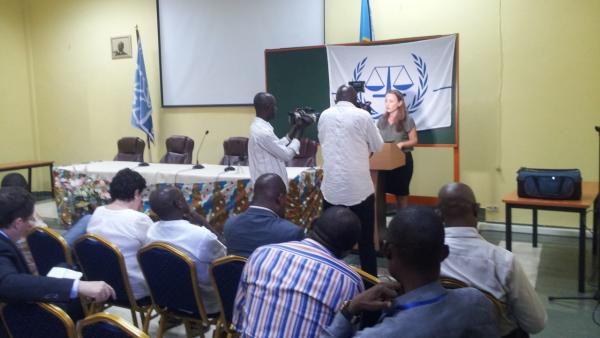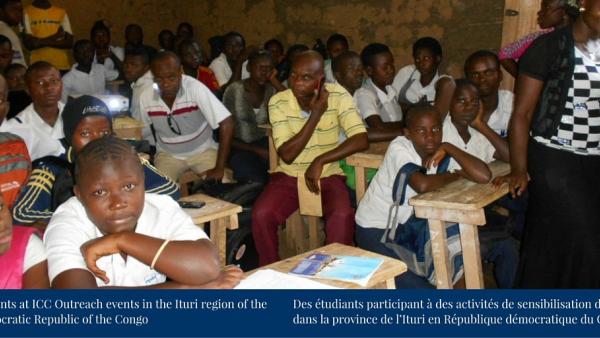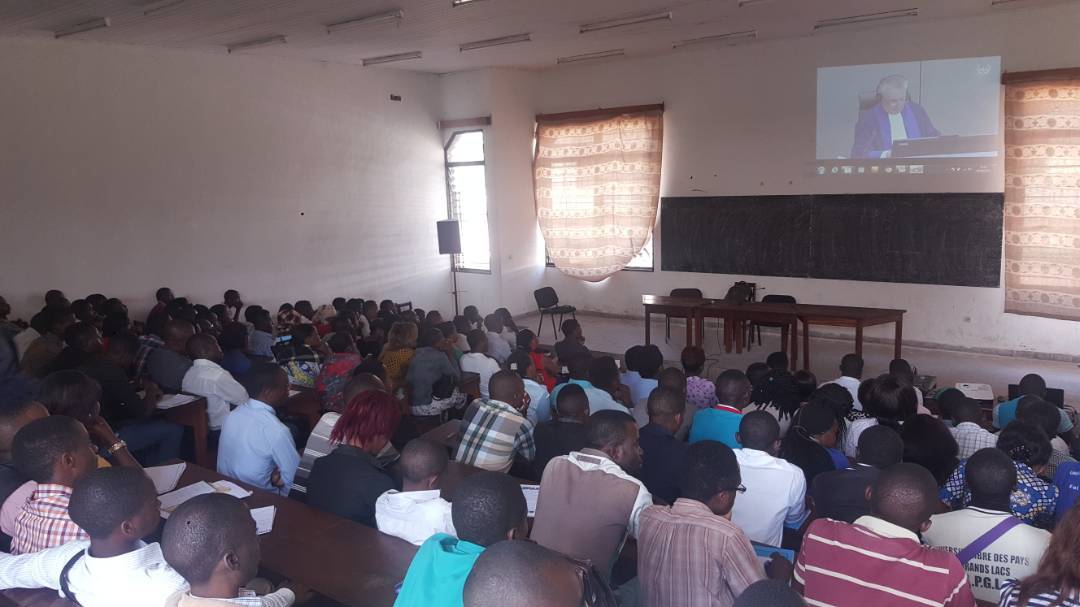
Youth Day in the DRC: Celebrating student engagement with peace, justice and the ICC
With Patrick Tshibuyi Wa Tshibuyi
For Youth Day 2017, I am celebrating Congolese students and the ongoing dialogue they are having with the ICC about peace and justice.
Young students and teachers have been key partners since the beginning of ICC outreach activities in the Democratic Republic of the Congo (DRC). Our work looks to the future. We encourage teaching international criminal law and improving knowledge about the Court among youth, who in our eyes are future lawyers, decision-makers and influencers.
From 2006 on, I have been on a team organizing conferences and debates in universities, as one of our main outreach activities for young students. But over time I realized that we did not have enough university specialists on the ICC. And, at that time, libraries in DRC had very few books on this topic. I then suggested to several law universities in the province that our team could talk about the ICC in law classes or seminars.
The universities I contacted were very enthusiastic about this suggestion. I was therefore able to engage with students in four university pilot projects from 2010 to 2015, which became seven in 2015, in partnership with the NGO Avocats sans Frontières Belgium. Conferences and debates on the ICC in those universities are ongoing to this day.
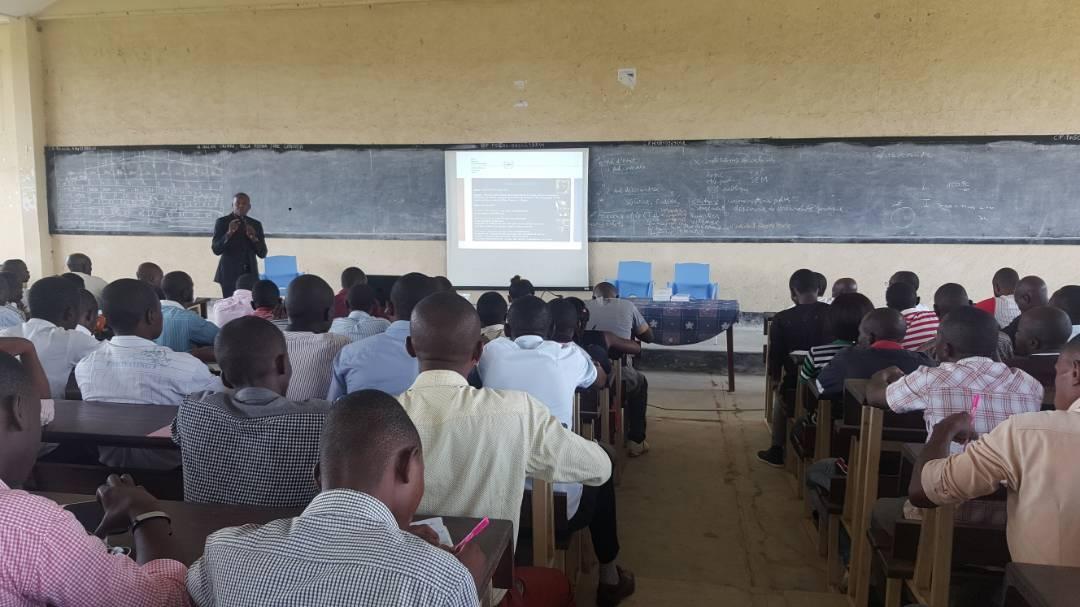
I am pleased to find out that students are more and more interested in the ICC. I remember one day, when I was in the University of Kisangani, I was surprised to see that a large number of PhD theses focused on the ICC. These doctoral students are the future experts on these issues and represent hope for peace and justice in the DRC.
Given the various armed conflicts experienced by the DRC, students are quite enthusiastic about the role that the Court can play in resolving conflicts. However, they sometimes have strong expectations: “We want all the perpetrators of serious crimes committed in the DRC to be prosecuted by the ICC,” someone said to me. It is also my role to explain that the Office of the Prosecutor focuses on individuals bearing the greatest responsibility for those crimes and that the ICC is complementary to national systems.
In Kinshasa, the Court also opened a small library at the ICC’s office, allowing students and researchers to consult basic documentation on the Court and international justice. The Outreach Unit also donated some books to the seven law faculties where we taught.
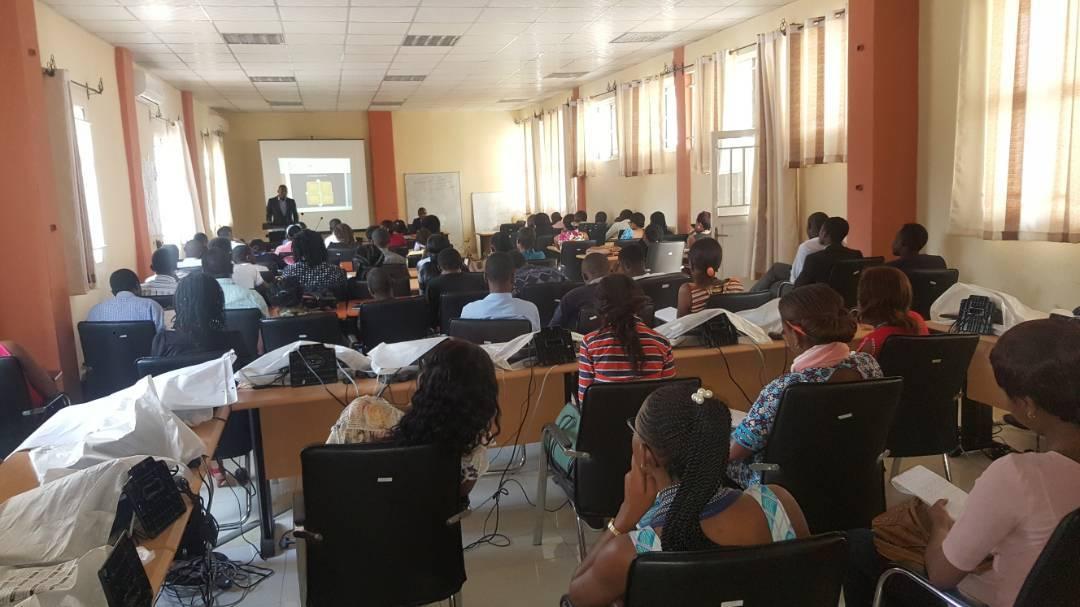
My work with young people, students and teachers goes on. This year, I have already held four debates in the universities of Kinshasa, Bunia, Goma and Bukavu, in particular to explain the recent reparations order in the Germain Katanga case. An issue which allowed animated debates…Informed debates are an integrated part of our outreach efforts. I am looking forward to more of those, on Youth Day and beyond.
